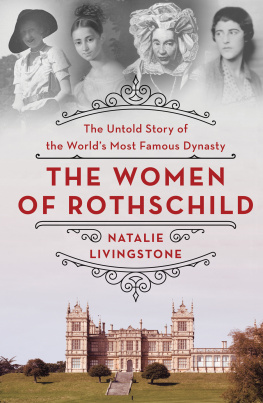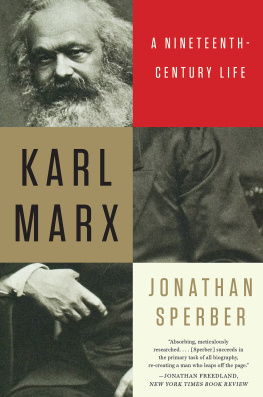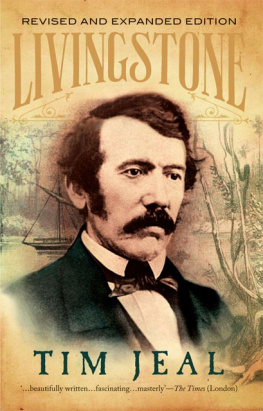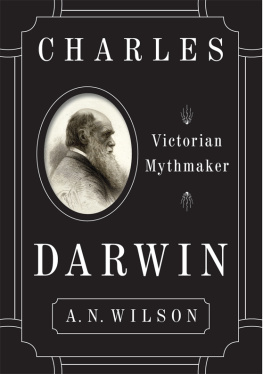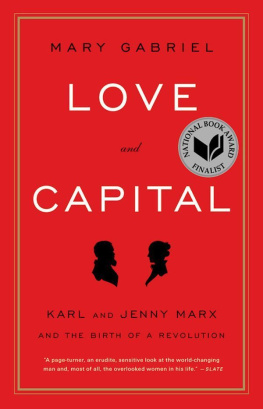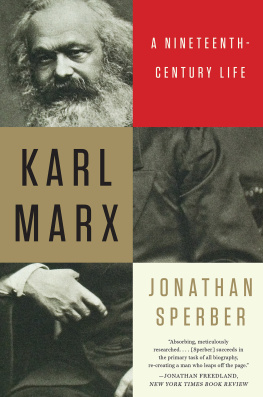Wives Of Fame
Mary Livingstone, Jenny Marx and Emma Darwin
Edna Healey

To Denis
with love and gratitude
This electronic edition published in 2011 by Bloomsbury Reader
Bloomsbury Reader is a division of Bloomsbury Publishing Plc, 50 Bedford Square, London
WC1B 3DP
Copyright 1986 Edna Healey
The moral right of author has been asserted
All rights reserved
You may not copy, distribute, transmit, reproduce or otherwise make available this publication
(or any part of it) in any form, or by any means (including without limitation electronic, digital,
optical, mechanical, photocopying, printing, recording or otherwise), without the prior written
permission of the publisher. Any person who does any unauthorised act in relation to this
publication may be liable to criminal prosecution and civil claims for damages
ISBN: 9781448207961
eISBN: 9781448207725
Visit www.bloomsburyreader.com to find out more about our authors and their books
You will find extracts, author interviews, author events and you can sign up for
newsletters to be the first to hear about our latest releases and special offers
The summer of 1857 has been the most beautiful in memory. The last echoes of the Crimean War have died away a year ago, and here in the quiet Kentish countryside the horrors of the Indian Mutiny are far away. The garden at Down House, bright with summer flowers, is silent save for the distant voices of children, the rattle of the flywheel of the well, and from the great lime trees the murmur of myriad bees. A clock chimes twelve and Charles Darwin, stick in hand, comes out over the shiny, pebbled path to take his morning walk. Down the sunny side of the Sand Walk to the summer house he paces, rapping the marker stones with his stick. By a bank of wild flowers Emma, in her faded cotton gown, waits for him and quietly they walk back together through the wood. It is a tranquil scene, and a casual observer watching this quiet routine would not have guessed the tumult in Charles Darwins mind. For the book he has been wrestling with for almost twenty years was to startle the world. When The Origin of Species was published in 1859 it would transform the thought of his and future generations.
That same summer, in the woods at Hadley Green on the edge of the peaceful Hertfordshire hamlet of Barnet, a man, lean and sun-tanned and wearing a battered peaked cap, plays with his children, leaping from the bushes and startling them with his lions roar. David Livingstone is taking a break from the agony of writing of his missionary travels in southern Africa. Beside the path a small, sturdy woman watches. In her old-fashioned bonnet and plaid shawl she could be his housekeeper. It is four years since Mary Livingstone and the children last braved real lions at their home on the edge of the Kalahari desert, years of separation wandering through chilly Britain while Livingstone trudged across the unknown heart of Africa to return a hero. Now he is writing a book which is to be seminal in his own time and which still affects our own. We are sowing seeds, he would write, which will bud and blossom when our heads are low. His description of the fertile highlands of Central Africa, which men had thought was arid desert, would encourage merchants, explorers and governments to scramble for the riches of the new country; while his searing account of the slave trade - the open sore of the world - would inspire generations of missionaries to follow in his steps.
It is Sunday evening on Hampstead Heath. A group of picnickers singing German folksongs makes its way from the grassy heights of Hampstead Heath towards the city spread out beneath them. At the rear a sturdy maid humps the huge, empty picnic basket; in front of her run three pretty girls. At the head of the procession a powerfully built man with a shock of greying hair and a black beard walks with his wife. Karl Marx and his family are heading home to their house in north London. His wife, Jenny, looks thin and ill but she strides beside him as one who is accustomed to walking. Her dress is simple, even poor, but her style is unmistakable. The singing stops and she begins to recite Shakespeare in a clear, musical voice. For a while she is Desdemona, then the girls call, Come on, Moor - your turn!, and Karl begins the long, long story that will hold them spellbound all the way home. He too is taking a break - from his work at the British Museum. For more than twelve years he has laboured at his mammoth Critique of Political Economy. On its publication, in 1859, it would hardly cause a ripple of interest. But it was to be the first instalment of his later work Das Kapital, which would disturb the whole world.
When Engels delivered his funeral oration at the graveside of Karl Marx in Highgate Cemetery he spoke of Marx and Darwin as the two giants of the age, claiming that, just as Darwin discovered the law of development of organic nature, so Marx discovered the law of development of human history. Livingstone too still towers above his contemporaries. He was, according to Florence Nightingale, the greatest man of his generation, a supreme example of the hardy working-class Scots who dominated the sphere of exploration in the nineteenth century. Each of these men pushed back the frontiers of knowledge. Each in his different way changed the thought of their age and of ours, and each still arouses fierce controversy.
The figures of the great, who loom so grandly in the halls of fame, appear to stand alone. But shine a light into the darkness and slowly dim outlines emerge behind them. Few men achieve greatness in isolation. Somewhere in the background is a colleague, a sister, or even a housekeeper or valet, without whom they could not have endured the stress and loneliness. But often there stands a wife, invisible and forgotten, whose name is not recorded on the tablets of bronze and of whose famous husband it is so frequently said: I didnt know he had a wife.
Only three such wives have been chosen here, but there are hundreds more throughout history who still await recognition. The reason for their obscurity may be in part that the followers of great men are jealous and resentful that their hero has a private world into which they may not intrude. Often they feel that marriage diminishes divinity. Many wives of famous men have been happy to be obscure. When asked if she took part in his work, the wife of the scientist Michael Faraday replied, I am content to be the pillow of his mind.
Mary Livingstone, Jenny Marx and Emma Darwin were three very different but exceptional women, living in the same turbulent period and married to three of the most outstanding men of the century. To understand their problems it is necessary to try to understand the nature of those who are spurred on to go, in Livingstones words, beyond other mens lines.
Men and women who break through boundaries are unique, but they have much in common. There is an extraordinary energy that impels the great. This electrifying power often strikes with such force that they describe it as coming from outside themselves. Francis Darwin wrote that his father worked as if an outside force were driving him, and as though he were charged with theorising power. Some believe, as Wellington did, that they were directed by the finger of God, while some are led by their star. Missionaries have seen before them a pillar of fire which they are compelled to follow, and many religious men and women, feeling this power, have agonized over its source, wondering whether it comes from God or the devil. But whatever the source of the power it can lead to feats beyond the usual bounds of endurance, and woe to him who resists it. This force can make a man a fanatic. In his unfinished tragedy



